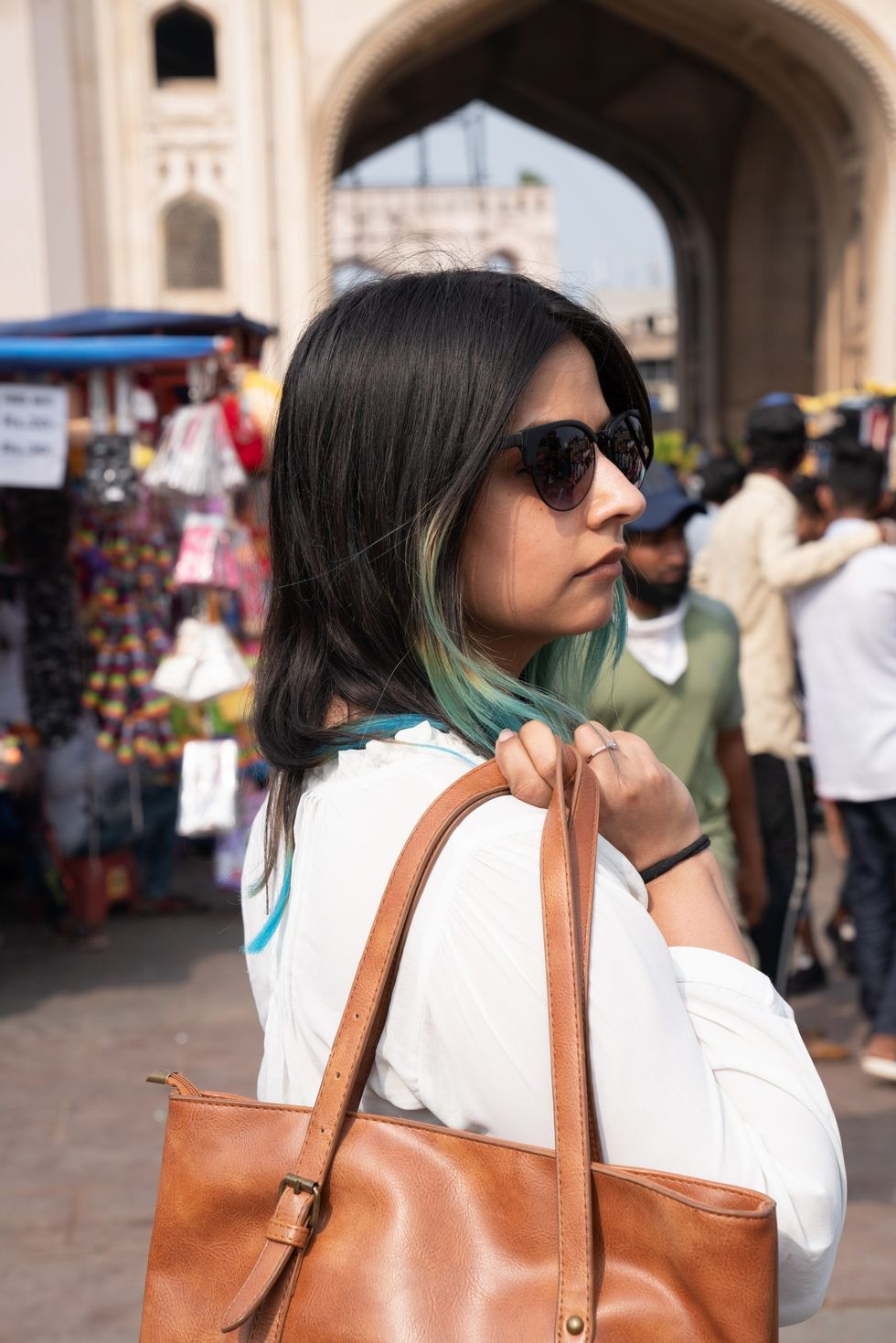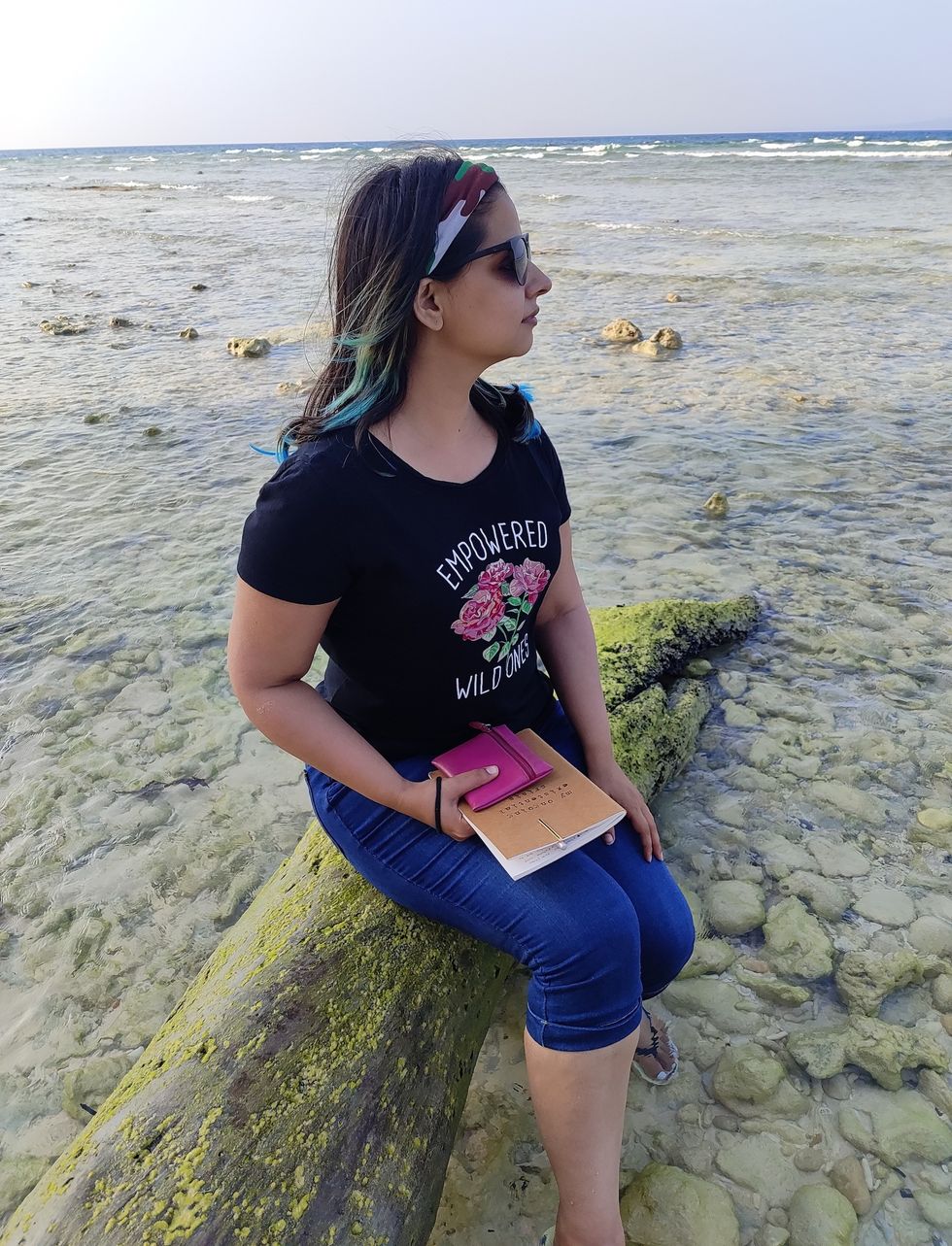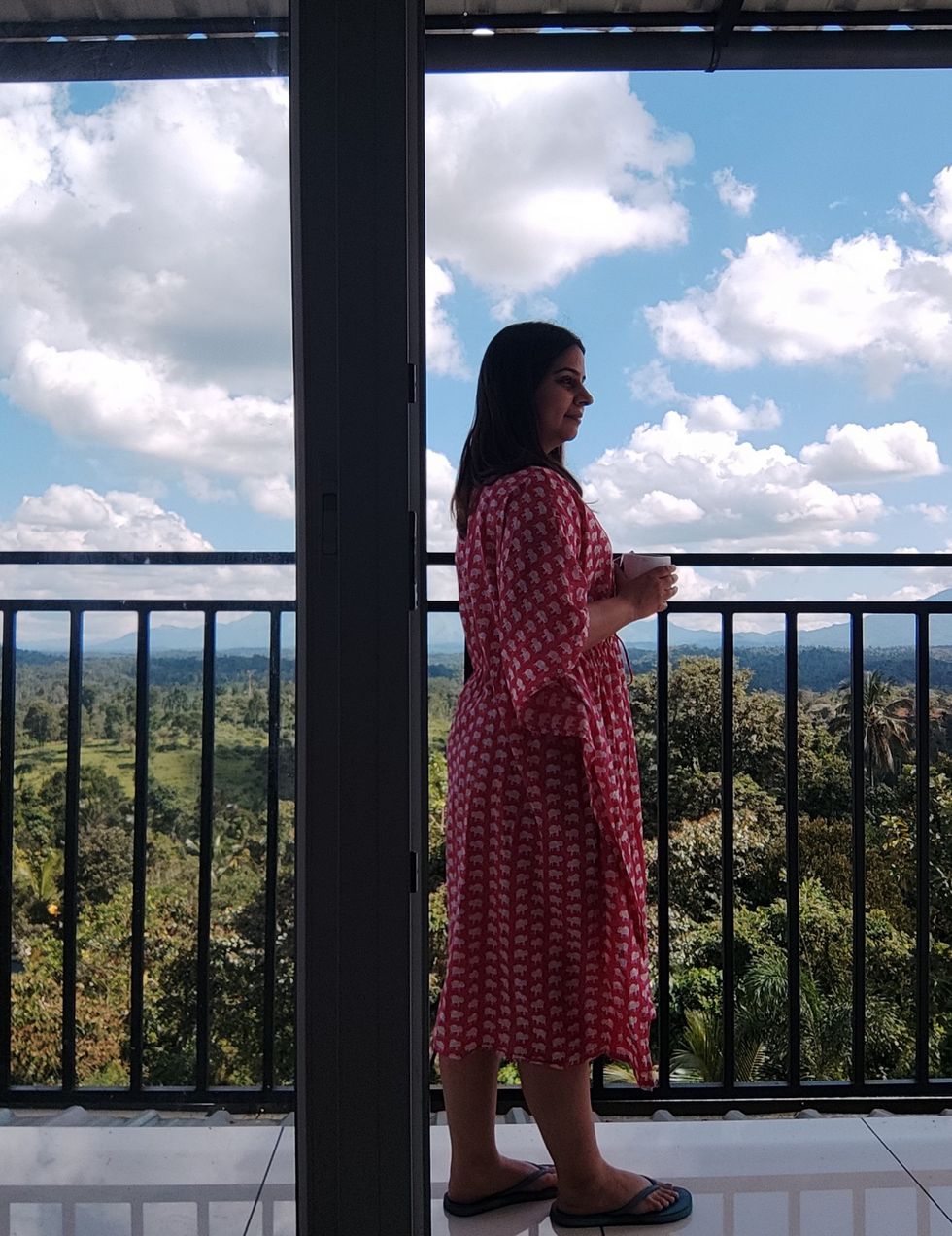Toward the end of 2020, Indian-American singer-songwriter-filmmaker Amanda Sodhi found herself feeling increasingly isolated, having outgrown cities she had previously lived in, as well as most of her friendships.
Alone in Srinagar, as she sat in a shikara at Dal on a rainy Diwali evening, it dawned upon her - why not downsize to one suitcase and consciously uproot herself every thirty days, trying out a new city each month, until she finds a place that feels like home?
“While I was born and brought up in Washington, DC, it never felt like home, perhaps because my equation with my family was always very strained," said Amanda. "Usually, people equate home with family, but that’s never been the case for me.”

She moved to Los Angeles at the age of 24 and then made the bold move of relocating to Mumbai at the age of 25. She had already written and directed two short films by then. And it was around this time she translated a few of Prasoon Joshi's lyrics from Hindi to English for his book, Sunshine Lanes.
“I was always interested in pursuing music and filmmaking since I was a child. I was receiving inquiries from artists in Mumbai at that time, so it seemed like a good idea to take the plunge. Of course, navigating the industry wasn’t so straightforward,” says the 34-year-old songstress whose single Behind My Sunglasses was Tweeted about by music maestro AR Rahman and Puppet Life was Tweeted about by actress Kalki Koechlin.

She found the industry in Mumbai a toxic space, and despite disapproval from many of her peers, she chose to relocate to Kolkata at the age of 29 and began shuttling between the City of Joy and Delhi until the pandemic hit. Of course, disapproval isn't something that was new to her - many frowned upon her earlier decision of having left the US for India, to begin with. “While I had a great initial run in Kolkata, and even formed my start-up Pen Paper Dreams, which promotes healing through creative self-expression - primarily writing workshops - I felt just as isolated as I did toward the end of 4.5 years in Mumbai after 3.5 years in Kolkata.”
While spending two months in Kashmir in 2020, that’s when the idea of this twelve-month offbeat journey came to her. “I didn’t want to return back to Kolkata and sulk in one place. So, it made sense to proactively go in search of where home might be, where my tribe might be, or perhaps see if my definition of a home might change in the process." Was she scared about travelling extensively amidst a pandemic? "I felt like I had nothing left to lose,” she replies.

This entire year, this brave woman travelled solo to places like Hyderabad, Andaman, Ooty, Kashmir, Hampi, Manali, Spiti, Imphal, Puri, Chandigarh, Delhi, and Kerala with just one suitcase, one backpack, and a whole lot of guts.
“Downsizing to one suitcase felt challenging, initially, but it taught me how little one needs to get by, actually,” Amanda shares. Good, bad, ugly, she’s had her share of eclectic experiences throughout this year.
“I was billed fraudulently by a hotel owner’s daughter in Port Blair, and she sent cops after me when I wrote an honest review on their Google Business Page about the experience. In Ooty, I had a harrowing experience at a hostel and had to check out the very next day. In Srinagar, I was stalked by a man in a car all the way to my homestay, and subsequently to the local police station. I fell in love and thought I had almost found a home, only to experience heartbreak,” she reveals. “But I’ve also met many amazing people throughout this journey, witnessed a lot of happy coincidences, spent extensive time in gorgeous locations, indulged in delicious local cuisine, and have also learned to reassess my own priorities in life at this juncture.”
Amanda hasn’t shied away about her mental health journey, either, whether it be in her Instagram stories or other interviews. “I’ve struggled with my mental health for a while. This year, I hit rock bottom, which is when I was diagnosed with PTSD linked to childhood trauma. Ironically, my lack of feeling a sense of belonging anywhere apparently stems from this. Changing one’s external environment won’t magically change what’s going on internally. The road to healing is probably going to be long, but at least I’ve begun.”

This avid solo traveller plans on dividing her time between Hyderabad, Srinagar, and Delhi next year. “While I couldn’t identify anyone place as home - perhaps because home isn’t a place, it’s people - I do intend to divide my time between Hyderabad and Kashmir in 2021, with pit-stops in Delhi. Hyderabad has all the comforts of a tier-one city, but a leisurely pace very similar to Kolkata that allows for unhurried conversations to flow. I like that. And, Kashmir, well, Kashmir isn’t a place, it’s an emotion, it’s like poetry in motion.”
Besides continuing to conduct writing workshops under her startup Pen Paper Dreams, and freelancing as a content writer, VO artist, and social media consultant, Amanda is also writing a book about this gutsy journey, tentatively titled Twelve Steps To Home. She also plans on releasing a new single with a music video that contains footage from all the places she visited. “After writing lyrics for two songs in Made In Heaven and releasing Takiye Pe Sar on Drishyam Play, I haven’t dabbled in music much. It’s something I’d like to prioritize in 2022.”




